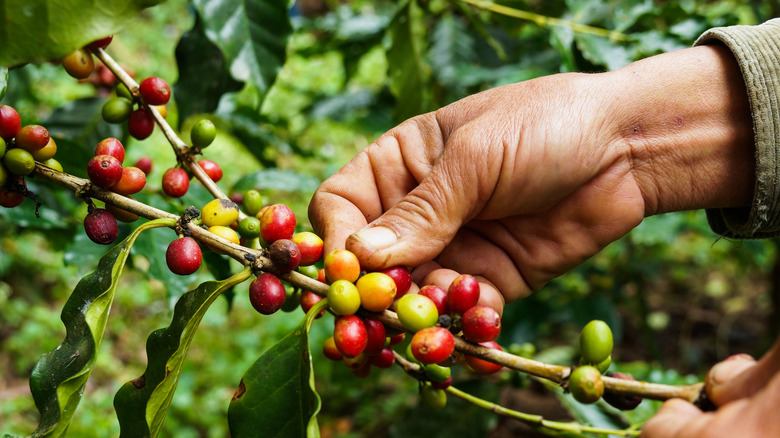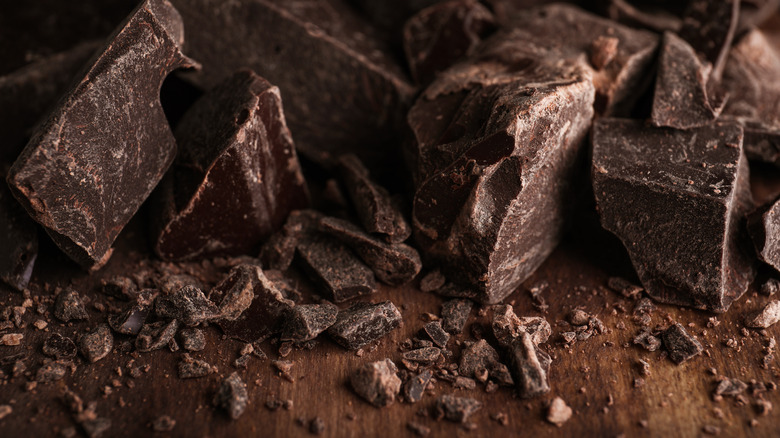A Former White House Chef Has A Grim Warning For Some Of Our Staple Foods
When a food item surges in price, there might be a number of causes at play. When it comes to the global inflation crisis that exploded in 2021 (and is only now starting to show signs of decline), those causes often branch from the same family tree. In some cases, the roots are planted in Russia, whose essential farming, energy, and transportation resources have been globally barred since the onset of Putin's attacks on Ukraine, per CNBC.
In other cases, the inflation tree is planted in parts of the world most severely affected by the climate crisis. In California, where a record-breaking drought is expected to return for the fourth year in a row (per the Washington Post), summer crops like tomatoes and onions have taken a hit. Meanwhile, workers at Amazon's air hub in San Bernadino walked off the job in the summer of 2022 partially in protest of heat exhaustion, Axios reports. Over in Kansas, Oklahoma, and Nebraska, NPR says similarly devastating droughts have put wheat farmers in a tight spot.
Unlike certain drivers of the current inflation crisis, climate change might be a more long-lasting threat to our global food supply. In an interview with People this week, former White House chef Sam Kass warned that ubiquitously popular food products could be "largely unavailable" in just three decades.
Coffee, chocolate, rice, and shellfish are in danger
After serving as the primary White House chef during the Obama administration, Sam Kass took on an executive director role for Michelle Obama's Let's Move campaign, which was built around solutions to childhood obesity. Shortly after, Kass broke into a novel position as the White House's first senior adviser on nutrition, says People. Kass is still spending plenty of time in the kitchen, but these days he's focused on "creating a discussion about sustainable food and agriculture practices."
At a dinner hosted by the sustainability-focused food brand Knorr, the environmentally-conscious chef told People that "a number of foods that we hold very dear to our hearts and largely take for granted are under a real threat." He's talking about big-ticket items like coffee, rice, shellfish, chocolate, and wine. "Food and agriculture is the number two driver of greenhouse gas emissions globally and uses about 70% of the world's waters," he added. "It's the number one driver of deforestation, land use change."
The Knorr event, catered by Kass and billed as a "$500 Dinner," was composed of dishes that cost $72 a pop. If the event were to be recreated 30 years from now, each guest would be shelling out $566 for the exact same meal. Kass acknowledges that food corporations are responsible for setting a good example for consumers, but he adds that eating sustainably and cutting back on red meat, and eating more beans and whole grains "can go a long way" to minimizing catastrophe.

